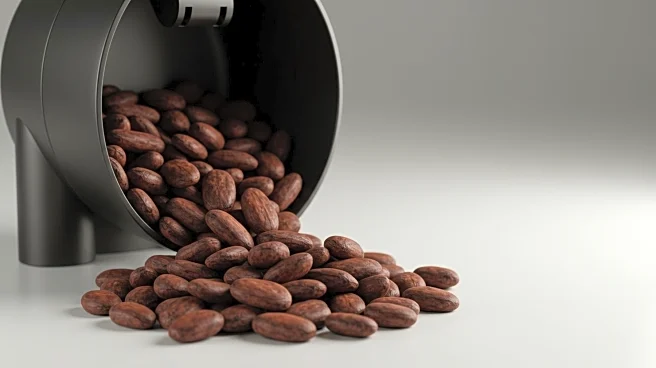What's Happening?
Ivory Coast's cocoa grind experienced a significant drop of 31.2% year-on-year in July, reaching 39,301 metric tons. This decline is attributed to poor bean quality and low mid-crop volumes, as reported by the exporters' association GEPEX. The total grind from the start of the 2024/25 season until the end of July was 515,055 tons, marking a 4% decrease compared to the same period last season. Cocoa bean arrivals at the main ports of Abidjan and San Pedro also fell by 30%, with only 350,000 tons arriving between April 1 and August 17, compared to 500,000 tons last year. Exporters have noted that grinders are currently out of stock and will need to rebuild their inventories to return to average grinding rates during the main harvest.
Why It's Important?
The decline in cocoa grinding in Ivory Coast, the world's top cocoa producer, has significant implications for the global chocolate industry. Poor bean quality and reduced supply could lead to increased prices and potential shortages in chocolate production. This situation highlights the vulnerability of supply chains to agricultural challenges and the importance of maintaining quality standards. Companies involved in cocoa processing, such as Barry Callebaut, Olam, and Cargill, may face operational challenges and financial impacts due to the reduced availability of quality cocoa beans.
What's Next?
Grinders in Ivory Coast are preparing to aggressively purchase beans at the start of the main harvest season in October to rebuild stocks and return to normal grinding levels. This effort will be crucial to stabilize the supply chain and meet global demand. The industry will be closely monitoring bean quality and crop volumes to adjust strategies accordingly. Stakeholders may also explore alternative sources or invest in improving bean quality to mitigate future risks.









